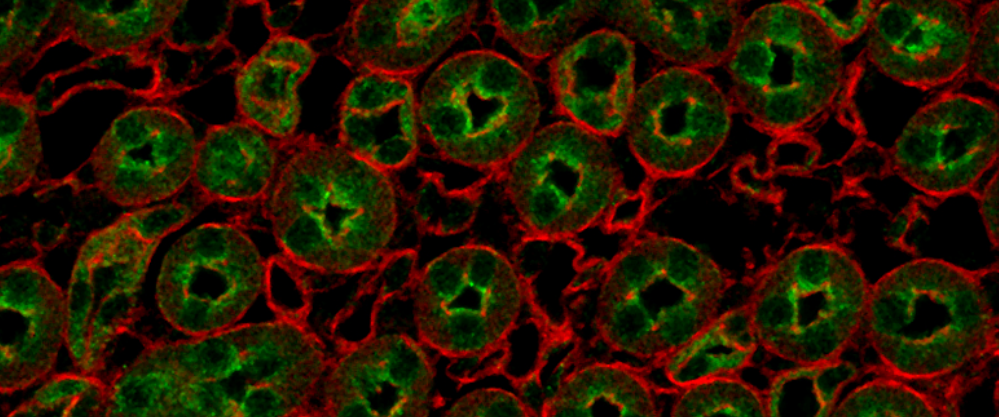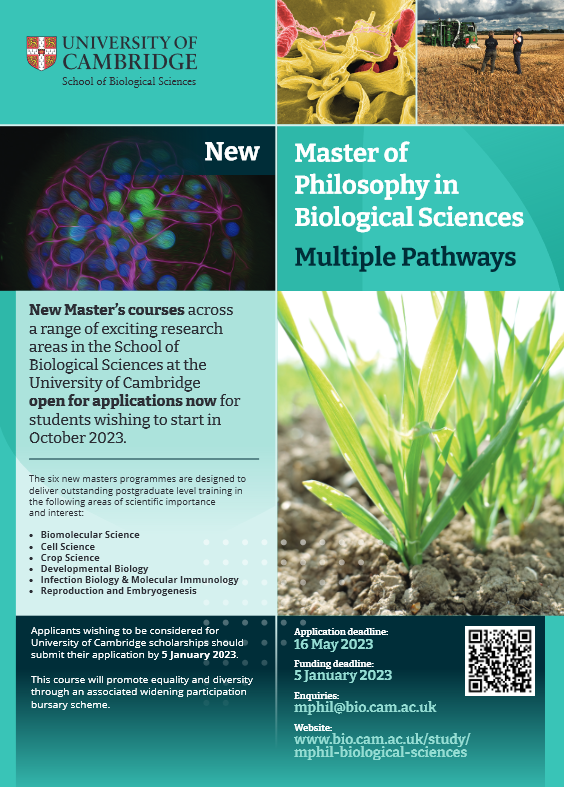Information on PhD research studentship vacancies can also be found on the Jobs and Studentship page of our website.
The Department of Pharmacology offers four postgraduate, Master of Philosophy programmes:
-
MPhil in Biological Science (Pharmacology) (1 year): code BLPHM1.
-
MPhil in Biological Science (Biomolecular Science) (11 months)
-
MPhil in Biological Science (Cell Science) (11 months)
MPhil in Therapeutic Sciences
The MPhil in Therapeutic Sciences provides students with an opportunity to undertake a period of study and research in therapeutic sciences. The MPhil is offered by the Faculty of Biology as a one-year, full-time period of study and research, in-person in Cambridge.
The field of therapeutic sciences is evolving rapidly in this exciting time of scientific, medical and technological innovation. Cambridge is a world-leading centre of excellence in therapeutic sciences, with numerous academic departments, institutes, biotechs, pharmaceutical and healthcare companies in the Cambridge area. The course will draw upon this breadth and depth of academic and industrial strength in therapeutic sciences to provide a unique environment for students on the course to gain experience of therapeutic sciences from academia and industry in an integrated setting.
The course aims to convey a detailed understanding of cutting-edge therapeutic sciences and to provide exposure to world-leading research in academia and industry. The seminars, workshops and discussions with world-leading experts will provide exposure to state-of-the-art knowledge, technologies and trends. Research placements will provide direct experience of translational research environments and techniques in academia and industry. Overall, the course will provide students with the tools and skills necessary to understand, develop and implement modern techniques in therapeutic sciences and to become future leaders in science and healthcare.
A full description, including requirements and how to apply, is available on the Cambridge Academy of Therapeutic Sciences website.
MPhil in Biological Science (Pharmacology) by Thesis
The MPhil is a 12-month full-time programme and involves minimal formal teaching: students are integrated into the research culture of the department by joining a research group. Most research training is provided within the group structure and overseen by their research supervisor, but they are also expected to attend the department’s programme of research seminars and other postgraduate courses and skills training offered by the Postgraduate School of Life Sciences, as is relevant to their education. Informal opportunities to develop research skills also exist through mentoring by fellow students and members of staff.
A full description, including requirements and how to apply, is available on the Postgraduate Admissions website.
MPhil in Biological Sciences (Biomolecular Science) by Advanced Study
This MPhil aims to convey a comprehensive understanding of biological processes at the molecular level. We will discuss the major biological macromolecule families, including, DNA, RNA, proteins and lipids. We will explore the properties of biological membranes, biomolecular recognition, signalling and therapeutics. The understanding and application of advanced technologies are crucial to the advancement of biomolecular science and these will be explored in depth. Although we will not focus on specific diseases, the workshops and discussions will include relevant pathophysiological contexts, as understanding the molecular basis of disease will be imperative to developing innovations, from target-based therapeutics to agricultural applications.
A full description, including requirements and how to apply, is available on the Postgraduate Admissions website.
MPhil in Biological Science (Cell Science) by Advanced Study
MPhil students meet regularly as a cohort for taught components. Core Topics in Cell Science comprise up to 60 hours of interactive, seminar-based teaching including a detailed exploration into some cutting-edge experimental approaches that are instrumental to advancing the field. This is complemented by student-led literature review sessions ("journal clubs"), designed to foster critical analysis and presentation skills via discussion of recent discoveries in the field.
Additionally, training is provided in key professional research and transferrable skills, such as time and data management, laboratory record keeping, research ethics and integrity, scientific communication skills and academic writing, and data analysis skills including statistics.
A full description, including requirements and how to apply, is available on the Postgraduate Admissions website.
This programme is advertised on the following poster:


